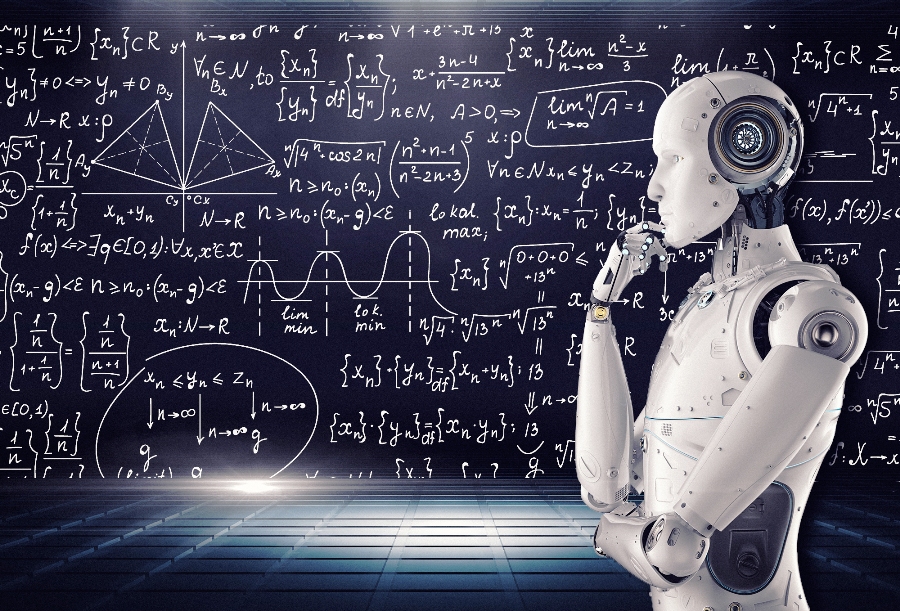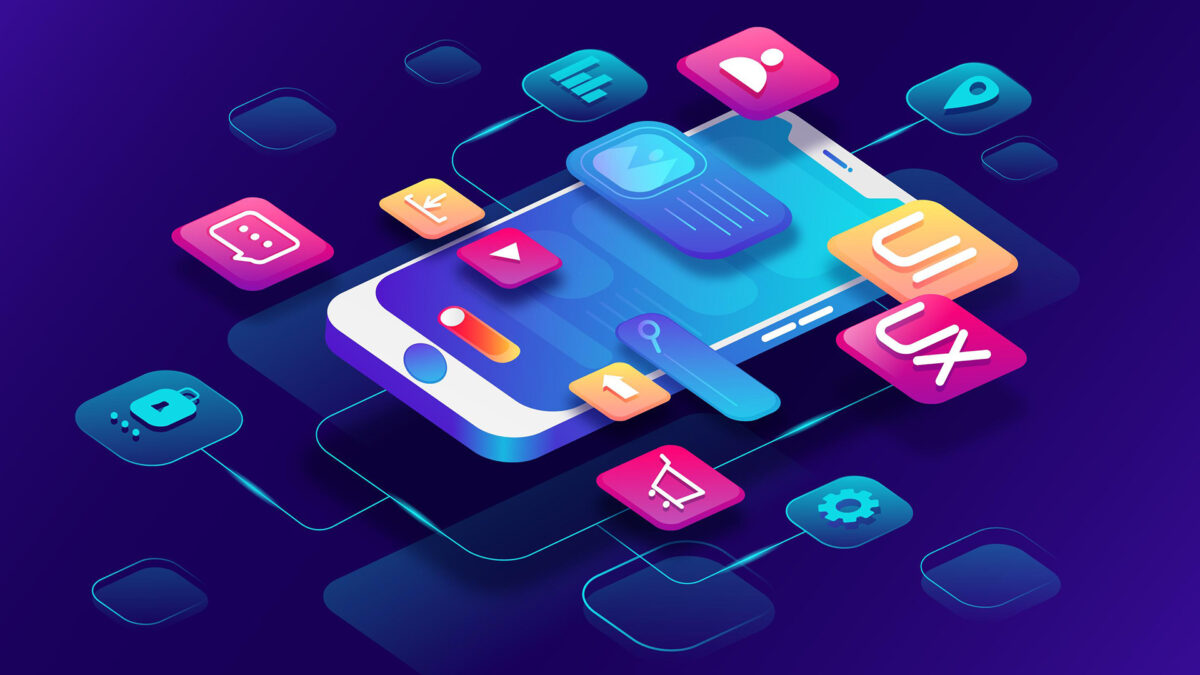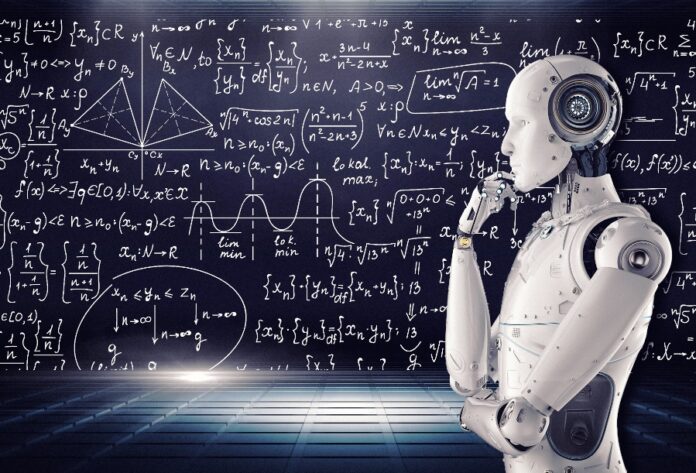by Altaf Rather
Artificial Intelligence (AI) is an inescapable reality that we all must confront, regardless of our reservations. While AI has yet to reach perfection, its presence is undeniable. I shall outline below certain aspects of my rudimentary understanding of this AI phenomenon.

In today’s era of rapid AI development, the debate surrounding its potential to supplant humans has gained traction. However, let us not forget that AI was initially designed to augment human capabilities, not replace them. As one ponders the merits of artificial intelligence, it is remarkable to consider that machines can now engage in conversation, comprehend our personal needs, and offer assistance. This is no longer the dominion of science fiction, but a tangible aspect of our contemporary reality.
AI is a burgeoning field that leverages computer science and mathematics principles to create machines capable of learning and making decisions akin to human intelligence. These machines can understand and react accordingly by analysing vast amounts of existing data. Although AI is still nascent, its influence is rapidly permeating all sectors.
It is crucial to acknowledge that AI is not intended to supplant humans, but rather serve as a supplementary tool, enhancing our decision-making capabilities and optimising performance across various facets of our lives.
Augmenting Human Capabilities
By scrutinising vast amounts of data, AI can resolve complex problems with unerring accuracy and alacrity, far surpassing human capabilities. This synergy will exponentially enhance the speed and precision of work across various disciplines. Moreover, AI’s application in repetitive and perilous tasks will mitigate human risks, exemplified by the deployment of robots in factories and drones in hazardous zones.
Furthermore, AI’s analytical prowess can inform human decision-making by distilling vast datasets and historical trends. In the medical field, AI can assist doctors in diagnosing diseases; in the corporate realm, it can formulate strategic plans; and in governance, it can inform policy decisions.
The advent of AI does not diminish the significance of human beings. AI’s inherent nature is not creative; inventing novel concepts, crafting artistic masterpieces, and exercising imaginative thinking are exclusive domains of human ingenuity. While AI can augment these abilities, it cannot supplant them. Humans possess the unique capacity for ethical decision-making, as AI systems lack the nuance to comprehend moral complexities and human-like emotions.
The interplay between humans and AI will yield unprecedented growth and prosperity across sectors. This rapidly evolving field is permeating every facet of our lives, enhancing efficiency, productivity, and decision-making, while facilitating groundbreaking discoveries.
AI is revolutionising diverse fields such as healthcare, education, manufacturing, and climate change, concomitantly creating novel employment opportunities. Ultimately, artificial intelligence serves as a tool, to be wielded wisely, with foresight and responsibility, to ameliorate our world.
Health Sector
Artificial Intelligence has emerged as a beacon of hope in the health sector, where the stakes are high and the margins for error are slim. Health, the most precious gift of our lives, is vulnerable to the unpredictability of new diseases. Fortunately, AI is revolutionising the health sector, playing a pivotal role in our quest for wellness and disease prevention.
Accurate diagnosis is the first crucial step towards effective treatment. However, complex symptoms often hinder doctors’ ability to make precise diagnoses. AI is bridging this gap by analysing data from various medical devices such as X-rays, MRIs, and CT scans, facilitating faster and more accurate diagnoses. This, in turn, enables timely treatment, leading to improved health outcomes.
Every patient is unique, warranting personalised treatment. AI assists in tailoring treatment plans to individual patients by scrutinising medical records, genetic information, and other factors. This bespoke approach proves more effective than a one-size-fits-all methodology.
The discovery of new drugs is a protracted and costly process, but AI is streamlining this journey, making it faster and more efficient. Moreover, AI is instrumental in addressing mental health concerns, such as depression and anxiety, by providing diagnostic support and connecting patients with mental health professionals through chatbots.
AI is also democratizing access to medical care, enabling patients in remote areas to consult specialist doctors via telemedicine, thereby saving time and money, and facilitating timely medical intervention. Furthermore, AI is transforming surgery by assisting in robotic procedures, allowing surgeons to perform complex operations with minimal errors, and expediting patient recovery.
The challenge of caring for the sick is alleviated by AI, which monitors patients’ health through sensors, alerting medical professionals to any changes, and enabling timely intervention. This reduces healthcare costs and saves doctors’ time, making healthcare more accessible to a broader population.
Education
Education, the cornerstone of personal development, is facing unprecedented challenges in the modern era. The traditional education system, once a beacon of knowledge, is now struggling to cater to the diverse needs of its students. Large class sizes, lack of individual attention, and uniform learning methods are hindering the progress of pupils. However, Artificial Intelligence (AI) has emerged as a shining light, illuminating a new path towards a more efficient, personalized, and engaging learning experience.
Every student is unique, with distinct learning styles and requirements. AI is revolutionizing the education sector by creating personalized learning environments tailored to each student’s needs. By analyzing a student’s pace, weaknesses, and strengths, AI can craft a bespoke learning plan, enabling students to learn at their own pace and grasp subjects more effectively.

AI is also transforming the learning experience, making it more interactive and enjoyable. AI-based games and interactive activities are replacing the monotony of traditional classrooms, engaging students, and enhancing their retention capabilities. Furthermore, AI is transcending the confines of the classroom, providing a lifelong learning experience through AI apps and online platforms. Students can now learn anytime, anywhere, at their convenience.
AI is not only benefiting students but also empowering teachers. It enables educators to analyse student performance, identify weaknesses, and implement targeted measures to
support their pupils. In an era of rapid change, AI is creating new learning opportunities, and facilitating upskilling and professional development through online courses and workshops.
Moreover, AI is democratizing access to knowledge, and providing learning opportunities to students in remote areas. However, it is crucial to harness this technology responsibly, ensuring it complements teachers rather than replaces them. Bridging the digital divide is also essential to guarantee equal access to AI’s benefits.
Ultimately, AI is poised to revolutionize the education sector, unlocking the potential of each student, and equipping future generations with the knowledge to build a better world.
A Double-Edged Sword
Artificial intelligence is a double-edged sword. While it offers numerous advantages, potential disadvantages lurk. As governments worldwide, including the United States, grapple with establishing a check and balance system on social media, it becomes increasingly evident that the internet, social media, and mobile phones have become integral to daily life. Avoiding them is no longer a viable option. Therefore, we must stress the importance of considering religious, cultural, and ethical aspects when navigating this AI reality. These tasks cannot be left to artificial intelligence, robots, or machines; the responsibility lies with humans to utilize this technology judiciously.
In the second part of my analysis, Islam’s encouragement of exploring nature and acquiring knowledge is evident. The Holy Qur’an states:
Recite in the name of your Lord who created [everyone]. He created man from clotted blood. Recite! Your Lord is the Most Merciful, who taught [to write] with the pen, taught man what he did not know. (Al-Alaq: 1–5).
Here, the pen can be seen as a metaphor for the tools facilitating knowledge acquisition today. These verses unequivocally establish the Holy Quran as the source and foundation of knowledge. Islam’s emphasis on knowledge is why Muslims were pioneers in various fields during the Islamic Caliphate. Muslim scientists made groundbreaking contributions to astronomy, medicine, mathematics, and other sciences. The West built upon these discoveries, advancing them further. Regrettably, Muslims have distanced themselves from their faith, leading to a decline in their contributions to various fields.

The need of the hour is to harmonize religious and contemporary education. Religious education imparts knowledge of the Creator, relationship ethics, and limits, while contemporary education enlightens us about science and technology. Combining these creates positive thinking, fostering an understanding of responsible AI and technology use. It is crucial to incorporate science and AI-related sciences into religious madrasa curricula. Scholars educated in this manner will be better equipped to address religious concerns arising from scientific and technological evolution, guided by the Quran and Sunnah. Islam encourages knowledge and technology acquisition, provided it is used for Allah’s pleasure. We must adhere to Quranic teachings while embracing modern science and technology, like AI, to regain our pioneering status in science and art.
(The author serves as a teacher at Government Middle School, Kawhar Payeen, Zone Fatehgarh, Baramulla. Ideas are personal)


